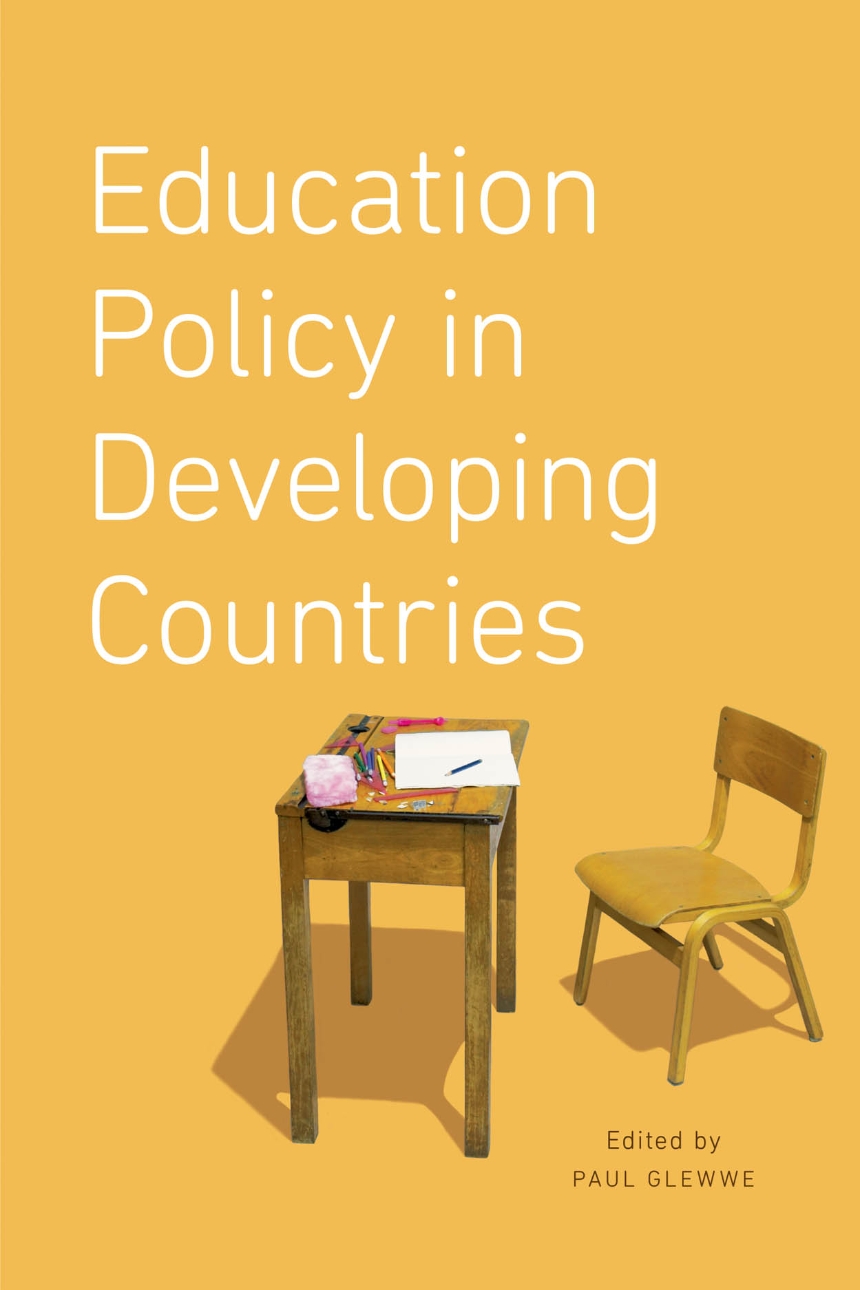Education Policy in Developing Countries
Almost any economist will agree that education plays a key role in determining a country’s economic growth and standard of living, but what we know about education policy in developing countries is remarkably incomplete and scattered over decades and across publications. Education Policy in Developing Countries rights this wrong, taking stock of twenty years of research to assess what we actually know—and what we still need to learn—about effective education policy in the places that need it the most.
Surveying many aspects of education—from administrative structures to the availability of health care to parent and student incentives—the contributors synthesize an impressive diversity of data, paying special attention to the gross imbalances in educational achievement that still exist between developed and developing countries. They draw out clear implications for governmental policy at a variety of levels, conscious of economic realities such as budget constraints, and point to crucial areas where future research is needed. Offering a wealth of insights into one of the best investments a nation can make, Education Policy in Developing Countries is an essential contribution to this most urgent field.
Surveying many aspects of education—from administrative structures to the availability of health care to parent and student incentives—the contributors synthesize an impressive diversity of data, paying special attention to the gross imbalances in educational achievement that still exist between developed and developing countries. They draw out clear implications for governmental policy at a variety of levels, conscious of economic realities such as budget constraints, and point to crucial areas where future research is needed. Offering a wealth of insights into one of the best investments a nation can make, Education Policy in Developing Countries is an essential contribution to this most urgent field.
352 pages | 12 line drawings, 36 tables | 6 x 9 | © 2013
Economics and Business: Economics--Development, Growth, Planning
Education: Education--Economics, Law, Politics
Reviews
Table of Contents
1 Overview of Education Issues in Developing Countries
Paul Glewwe
2 School Resources and Educational Outcomes in Developing Countries: A Review of the Literature from 1990 to 2010
Paul Glewwe, Eric A. Hanushek, Sarah Humpage, and Renato Ravina
3 Preschool Programs in Developing Countries
Jere R. Behrman, Patrice Engle, and Lia Fernald
4 Child Health and Educational Outcomes
Harold Alderman and Hoyt Bleakley
5 Incentives for Students and Parents
Jere R. Behrman, Susan W. Parker, and Petra E. Todd
6 School Management in Developing Countries
Sebastian Galiani and Ricardo Perez-Truglia
7 Competition and Educational Productivity: Incentives Writ Large
W. Bentley MacLeod and Miguel Urquiola
8 Comparative Cost-Effectiveness Analysis to Inform Policy in Developing Countries: A General Framework with Applications for Education
Iqbal Dhaliwal, Esther Duflo, Rachel Glennerster, and Caitlin Tulloch
Index
Paul Glewwe
2 School Resources and Educational Outcomes in Developing Countries: A Review of the Literature from 1990 to 2010
Paul Glewwe, Eric A. Hanushek, Sarah Humpage, and Renato Ravina
3 Preschool Programs in Developing Countries
Jere R. Behrman, Patrice Engle, and Lia Fernald
4 Child Health and Educational Outcomes
Harold Alderman and Hoyt Bleakley
5 Incentives for Students and Parents
Jere R. Behrman, Susan W. Parker, and Petra E. Todd
6 School Management in Developing Countries
Sebastian Galiani and Ricardo Perez-Truglia
7 Competition and Educational Productivity: Incentives Writ Large
W. Bentley MacLeod and Miguel Urquiola
8 Comparative Cost-Effectiveness Analysis to Inform Policy in Developing Countries: A General Framework with Applications for Education
Iqbal Dhaliwal, Esther Duflo, Rachel Glennerster, and Caitlin Tulloch
Index
